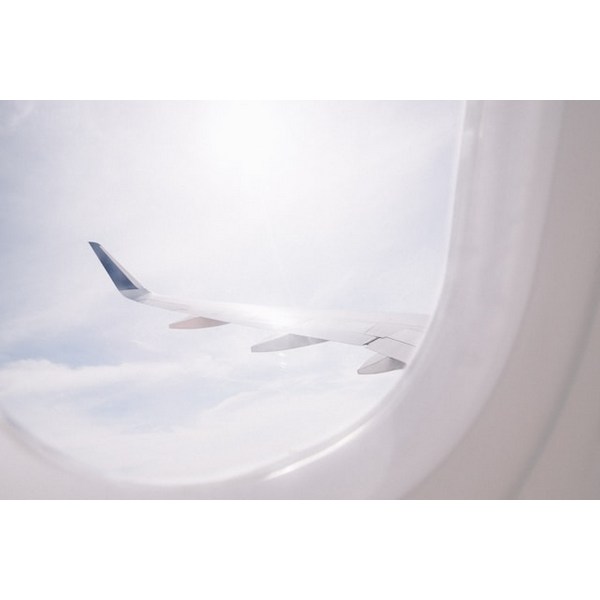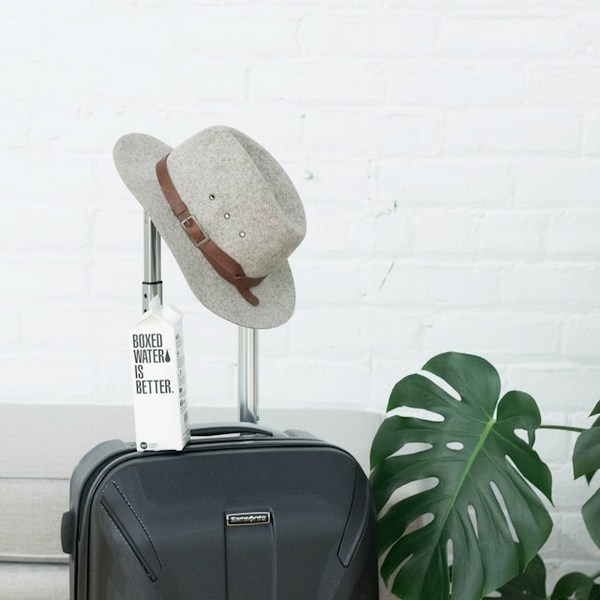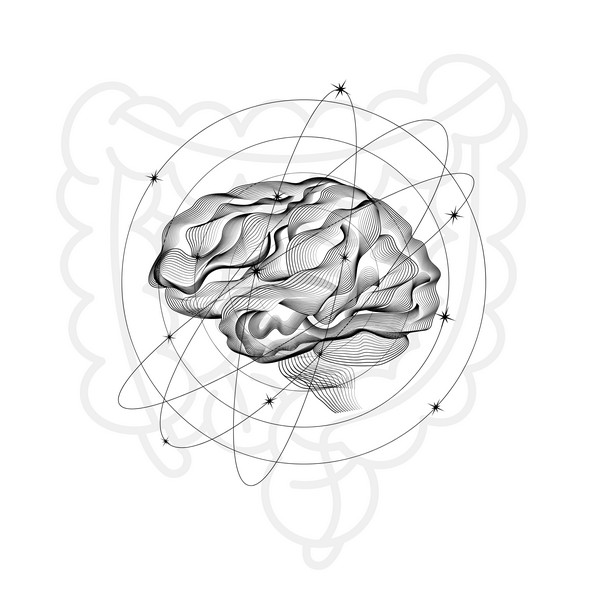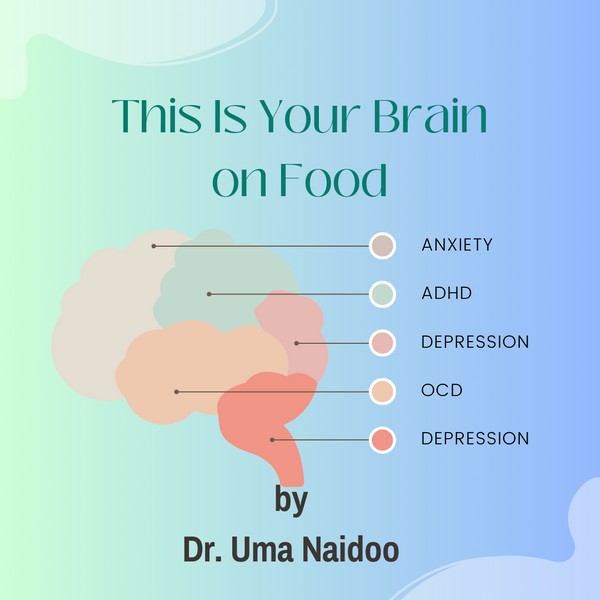Key Highlights
- Traveling reduces stress and improves mental well-being.
- It enhances creativity by exposing you to new experiences.
- Traveling improves physical fitness through exploration and adventure.
- It strengthens heart health by encouraging an active lifestyle.
- Travel promotes better sleep patterns and overall recovery.
- It encourages healthy eating habits by allowing you to try new foods.
Table of Contents
Traveling is not only a way to escape the monotony of everyday life and explore new places, but it also has numerous hidden health benefits. From boosting mental well-being to improving physical fitness, traveling can have a positive impact on your overall health and well-being.
Hidden Health Benefits of Traveling
Traveling offers a multitude of health benefits that often go unnoticed. It can improve mental health by reducing stress levels and promoting relaxation. It also enhances creativity by exposing you to new experiences and perspectives. On the physical front, traveling encourages physical fitness through exploration and adventure.
It strengthens heart health by promoting an active lifestyle, reduces the risk of heart disease, and improves overall cardiovascular health. Additionally, traveling can boost the immune system by exposing you to different environments and promoting adaptability.
1. Boosts Mental Health and Reduces Stress

Traveling has a profound impact on mental health and can reduce stress levels significantly. When you step out of your routine and into a new environment, your mind gets a chance to unwind and recharge. Here are some ways in which traveling boosts mental health and reduces stress:
- Breaking away from daily stressors: Traveling allows you to leave behind the stressors of work, family, and daily life, giving your mind a break from the constant pressures.
- Relaxation and rejuvenation: Exploring new places, trying new activities, and immersing yourself in different cultures can provide a sense of relaxation and rejuvenation, allowing you to return home with a refreshed mindset.
- Exposure to new experiences: Traveling exposes you to new experiences, which can broaden your perspective, stimulate your mind, and provide a fresh outlook on life.
- Creating positive memories: Traveling creates lasting memories and positive experiences, which can improve overall well-being and contribute to a more positive mindset.
Remember, taking time off to travel is not just a luxury but an investment in your mental health and well-being.
2. Enhances Creativity by Exposing You to New Experiences

Traveling is a great source of inspiration and can significantly enhance your creativity. Exposing yourself to new experiences, cultures, and environments allows your brain to make new connections and think in different ways. Here are some ways in which traveling can boost your creativity:
- New perspectives: Exploring new places and immersing yourself in different cultures exposes you to different perspectives and ways of thinking, which can spark creativity and open your mind to new possibilities.
- Cultural immersion: Experiencing different cultures and traditions can provide a fresh perspective and inspire creative thinking. It allows you to see the world from a different lens and gain a deeper understanding of the diversity of human experiences.
- Stepping out of your comfort zone: Traveling often requires you to step out of your comfort zone and try new things. This can stimulate your brain and encourage you to think creatively to navigate unfamiliar situations.
- Exposure to art, architecture, and natural beauty: Visiting museums, historical sites, and natural wonders can ignite your creativity and inspire new ideas. The beauty and creativity displayed in art, architecture, and nature can leave a lasting impact on your creative senses.
Exposing yourself to new experiences and embracing the unknown, you can tap into your creative potential and unlock new ideas and perspectives.
3. Improves Physical Fitness Through Exploration and Adventure

Traveling offers countless opportunities for physical activity, making it an excellent way to improve your physical fitness. Here are some ways in which traveling can contribute to your physical well-being:
- Outdoor activities: Many travel destinations offer opportunities for outdoor activities such as hiking, swimming, biking, and skiing. Engaging in these activities not only allows you to explore and discover new places but also helps you stay active and improve your cardiovascular fitness.
- Exploration: Traveling often involves exploring new cities, towns, and landscapes on foot. Walking and exploring on foot can be an excellent form of physical exercise and help improve your endurance and overall fitness.
- Adventure sports: If you’re an adventure enthusiast, traveling can provide ample opportunities to try thrilling activities such as rock climbing, zip-lining, whitewater rafting, and more. These activities challenge your physical abilities, improve strength and flexibility, and offer a sense of accomplishment.
- Active transportation: Opting for active modes of transportation such as walking or cycling while exploring a new destination can help you burn calories and improve your overall fitness.
Traveling not only allows you to experience new cultures and places but also provides a platform for engaging in physical activities and improving your physical fitness.
4. Strengthens Heart Health by Staying Active

Traveling can have a positive impact on heart health by promoting an active lifestyle and reducing the risk of heart disease. Here’s how:
- Physical activity: Traveling often involves engaging in physical activities such as walking, hiking, biking, and swimming. Regular physical activity is crucial for maintaining a healthy heart and reducing the risk of cardiovascular diseases.
- Lower stress levels: Traveling allows you to take a break from the daily stressors of life, which can have a positive impact on your heart health. Lower stress levels contribute to better heart health and reduce the risk of heart disease.
- Exploration and adventure: Exploring new destinations and engaging in adventurous activities not only provides an exciting experience but also keeps you physically active, helping to strengthen your heart and improve overall cardiovascular fitness.
Embracing an active lifestyle while traveling, you can support your heart health and reduce the risk of heart disease.
5. Promotes Better Sleep Patterns and Recovery

Traveling can have a positive impact on sleep patterns and overall recovery. Here’s how:
- Breaking away from routine: Traveling provides an opportunity to break away from your daily routine, including sleep patterns. This change in routine can help reset your body’s sleep-wake cycle and improve sleep patterns.
- Relaxation and stress reduction: Traveling often involves relaxation and enjoying pleasurable activities. This can help reduce stress levels, promote relaxation, and improve the quality of sleep.
- Time for rest and rejuvenation: Taking time off to travel allows you to focus on rest and rejuvenation. It gives you the opportunity to catch up on sleep, relax, and recover from the stresses of everyday life.
- Jet lag and sleep adjustments: Traveling across time zones may disrupt your sleep patterns initially, but it can also help you adjust and regulate your sleep-wake cycle in the long run. The process of adjusting to a new time zone can lead to better sleep patterns and improve sleep quality.
Prioritizing rest and relaxation while traveling, you can promote better sleep patterns and overall recovery, leading to improved well-being.
6. Encourages Healthy Eating by Trying New Foods
Traveling allows you to explore different cuisines and try new foods, which can encourage healthy eating habits. Here’s how:
- Culinary exploration: Traveling gives you the opportunity to experience new flavors, ingredients, and cooking techniques. Trying new foods can expand your palate and introduce you to healthier options.
- Cultural immersion: Experiencing different cultures through their cuisine can provide insights into their traditional and healthy eating habits. You can learn about the importance of fresh ingredients, balanced meals, and portion control.
- Local produce and ingredients: Exploring local markets and trying locally sourced ingredients can expose you to fresh and nutritious foods. You can discover local fruits, vegetables, and other healthy food options specific to the region you’re traveling to.
- Mindful eating: Traveling can encourage mindful eating by allowing you to savor each bite, appreciate the flavors, and enjoy the dining experience. Mindful eating promotes healthier food choices and portion control.
Embracing the culinary experiences while traveling, you can expand your taste buds and develop healthier eating habits.
7. Increases Happiness and Satisfaction

Traveling has a positive impact on overall happiness and satisfaction. Here’s why:
- Novel experiences: Traveling provides opportunities to engage in new and exciting experiences, which can boost happiness and satisfaction. The anticipation and enjoyment of these experiences contribute to a positive mindset.
- Making memories: Traveling allows you to create lasting memories, which can bring long-term happiness and satisfaction. The joy and fulfillment derived from travel experiences can have a positive impact on overall well-being.
- Escaping daily routines: Breaking away from daily routines and responsibilities can provide a sense of freedom and relaxation, leading to increased happiness and satisfaction.
- Appreciation for life: Traveling exposes you to different cultures, landscapes, and ways of life, which can foster a sense of gratitude and appreciation for the world around you. This appreciation contributes to a more positive outlook on life.
Recognizing the joys of travel and appreciating the experiences it offers, you can increase happiness and satisfaction in your life.
8. Strengthens Relationships Through Shared Experiences
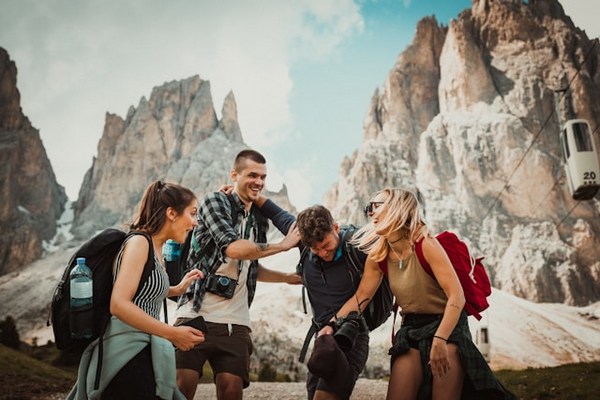
Traveling with loved ones or making new connections while traveling can strengthen relationships. Here’s how:
- Quality time: Traveling allows you to spend quality time with your loved ones away from the distractions of everyday life. Sharing new experiences and creating memories together can deepen bonds and strengthen relationships.
- Shared adventures: Exploring new places, trying new activities, and overcoming challenges together can create a sense of camaraderie and shared experiences. These shared adventures contribute to stronger relationships.
- Meeting new people: Traveling often involves meeting new people and making new connections. These new relationships can broaden your social network and provide opportunities for personal growth.
- Communication and teamwork: Traveling requires effective communication and teamwork, which can enhance relationship dynamics. Navigating unfamiliar territories and making decisions together fosters collaboration and strengthens relationships.
9. Improves Immune System by Exposure to Different Environments
Traveling exposes you to different environments, which can have a positive impact on your immune system. Here’s how:
- Adaptability: Traveling to new places exposes your immune system to different climates, foods, and environments. This exposure can help strengthen your immune system and enhance its ability to adapt to new challenges.
- Exposure to diverse bacteria and viruses: Traveling exposes you to a variety of bacteria and viruses, which can stimulate your immune system and improve its ability to fight off infections.
- Stress reduction: Traveling reduces stress levels, and chronic stress weakens the immune system. By reducing stress through travel, you can support your immune system and its ability to function optimally.
- Vitamin D and sunlight exposure: Traveling to sunny destinations allows you to soak up the sun and increase your vitamin D levels. Vitamin D plays a crucial role in immune function and can help boost your immune system.
10. Enhances Personal Growth and Self-Discovery

Traveling offers opportunities for personal growth and self-discovery. Here’s how:
- Stepping out of your comfort zone: Traveling often requires you to step out of your comfort zone and face new challenges. This can lead to personal growth, increased self-confidence, and a sense of accomplishment.
- Cultural immersion: Experiencing different cultures and ways of life can broaden your horizons and challenge your preconceived notions. This exposure encourages personal growth and self-discovery by expanding your perspectives and understanding of the world.
- Reflection and introspection: Traveling provides time for self-reflection and introspection. It allows you to disconnect from everyday distractions and gain a deeper understanding of yourself, your values, and your goals.
- Learning and education: Traveling offers a unique educational experience. Whether it’s learning about history, art, or local customs, traveling allows you to expand your knowledge and gain a deeper appreciation for the world’s diversity.
How Traveling Impacts Mental Well-being
Traveling has a profound impact on mental well-being and can contribute to improved mental health. Here are some ways in which traveling impacts mental well-being:
- Stress reduction: Traveling allows you to take a break from the stressors of everyday life, which can significantly reduce stress levels and promote relaxation.
- Mental rejuvenation: Exploring new places and engaging in pleasurable activities while traveling provides mental rejuvenation and helps improve overall well-being.
- Resilience and adaptability: Traveling often involves adapting to new environments and navigating unfamiliar situations. This promotes resilience and helps develop important coping skills.
- Broadened perspectives: Experiencing different cultures and ways of life broadens your perspectives and helps you see the world from a fresh and renewed mindset.
Traveling has a transformative effect on mental well-being, promoting resilience, relaxation, and a positive outlook on life.
Understanding the Psychological Benefits of New Experiences
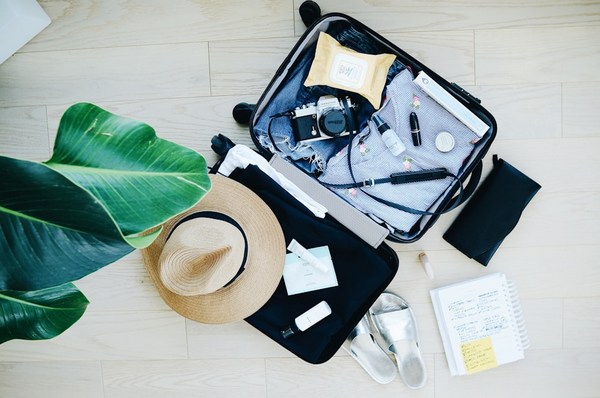
Engaging in new experiences while traveling has significant psychological benefits. Here’s how:
- Increased happiness and well-being: Trying new activities and immersing yourself in unfamiliar environments releases dopamine, a neurotransmitter associated with pleasure and happiness. This can result in increased well-being and a more positive outlook on life.
- Improved cognitive function: New experiences stimulate the brain and promote neuroplasticity, which is the brain’s ability to form new connections and adapt to changing environments. This can improve cognitive function and enhance memory and learning abilities.
- Enhanced problem-solving skills: Navigating different situations and overcoming challenges while traveling enhances problem-solving skills. This can lead to increased confidence and a sense of accomplishment.
- Boosted self-esteem: Conquering new experiences and stepping out of your comfort zone while traveling can boost self-esteem and self-confidence.
Coping with Anxiety and Depression Through Travel
Traveling can be a powerful coping mechanism for individuals dealing with anxiety and depression. Here’s why:
- Change of environment: Traveling provides a change of environment, which can offer a temporary reprieve from the triggers and stressors that contribute to anxiety and depression.
- Mindfulness and relaxation: Engaging in new activities and immersing yourself in the present moment while traveling promotes mindfulness and relaxation. This can help reduce anxiety and improve overall mental well-being.
- Social connection: Traveling often involves social interactions and the opportunity to meet new people. Social connection plays a crucial role in coping with anxiety and depression and can provide a sense of belonging and support.
- Increased self-care: Taking time off to travel demonstrates a commitment to self-care and prioritizing one’s mental health. Engaging in pleasurable activities and practicing self-care while traveling can help alleviate symptoms of anxiety and depression.
Utilizing travel as a coping mechanism, individuals can find solace, mindfulness, and support to manage anxiety and depression effectively.
Physical Health Advantages of Frequent Travel
Frequent travel offers many physical health advantages, ranging from improved heart health to weight management. Here’s how:
- Active travel: Engaging in physical activities such as walking, hiking, or biking while traveling promotes physical fitness and helps maintain a healthy weight.
- Cardiovascular health: Regular physical activity, which is often inherent in travel, is essential for maintaining a healthy heart and reducing the risk of heart disease.
- Weight management: Travel introduces new environments, activities, and cuisines, encouraging healthier eating habits and portion control, which can contribute to weight management.
The Role of Active Travel in Weight Management
Active travel, which involves engaging in physical activities during your travels, plays a significant role in weight management. Here’s how:
- Calorie expenditure: Activities such as walking, hiking, biking, and swimming burn calories and contribute to weight management. Active travel provides ample opportunities to engage in these activities and maintain a healthy weight.
- Increased physical strength: Engaging in physical activities during travel promotes muscle development and overall physical strength. This can improve overall fitness and aid in weight management.
- Exploration through movement: Active travel encourages exploration by foot, allowing you to discover new places and experience the world in a more active and engaging way.
How Adventure Activities Contribute to Physical Strength

Engaging in adventure activities while traveling can contribute to physical strength and overall fitness. Here’s why:
- Full-body workouts: Adventure activities such as rock climbing, zip-lining, and kayaking engage multiple muscle groups, providing a full-body workout and promoting physical strength.
- Improved endurance: Adventure activities often require stamina and endurance. Regular participation in these activities can improve cardiovascular endurance and overall fitness.
- Balance and coordination: Many adventure activities require balance and coordination, such as hiking challenging terrains or navigating through obstacle courses. These activities improve balance and enhance motor skills.
- Mental and physical resilience: Adventure activities often push individuals outside their comfort zones, promoting mental and physical resilience. Overcoming challenges and obstacles during these activities can lead to increased physical strength and improved overall fitness.
Social Benefits of Traveling
Traveling offers numerous social benefits, including the opportunity to meet new people and gain cultural understanding. Here’s why:
- Meeting new people: Traveling introduces you to people from different backgrounds and cultures, providing opportunities for new friendships and connections. These new relationships can broaden your social network and enrich your life.
- Cultural understanding: Experiencing different cultures firsthand fosters cultural understanding and empathy. It allows you to appreciate diversity and develop a more nuanced perspective of the world.
- Broadened horizons: Engaging with people from different cultures expands your worldview and challenges preconceived notions. It broadens your horizons and promotes a sense of openness and acceptance.
Building Strong Bonds with Travel Companions
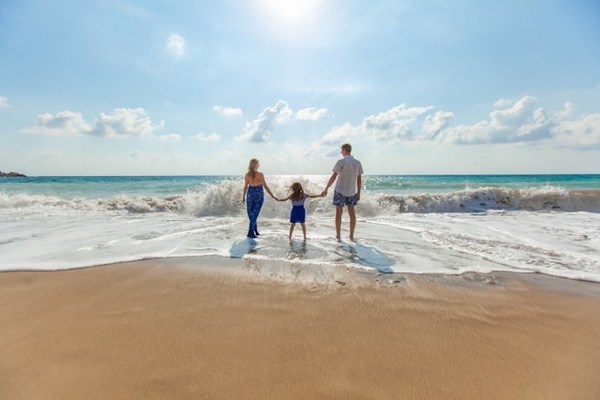
Traveling with companions provides an opportunity to build strong bonds and create lasting memories. Here’s how:
- Shared experiences: Traveling with others allows you to share new experiences, challenges, and adventures. These shared experiences create a bond and strengthen relationships.
- Quality time: Traveling provides uninterrupted quality time with your travel companions. Away from the distractions of everyday life, you can engage in meaningful conversations, create memories, and deepen personal connections.
- Nurturing relationships: Sharing the ups and downs of travel fosters teamwork, communication, and compromise. These qualities are essential for building strong and resilient relationships.
- Creating lifelong memories: The memories created during travel become cherished moments that strengthen the bond between travel companions. These shared memories contribute to lifelong friendships and a sense of camaraderie.
Gaining New Perspectives and Cultural Understanding
Traveling exposes you to new perspectives and promotes cultural understanding. Here’s how:
- Experiencing different cultures: Traveling allows you to immerse yourself in different cultures and customs, providing an opportunity to gain firsthand experience and understanding of diverse ways of life.
- Breaking stereotypes: Engaging with people from different cultures challenges stereotypes and fosters a more nuanced and empathetic understanding of the world.
- Broadening perspectives: Experiencing different cultures broadens your perspectives and opens your mind to new ways of thinking. It promotes tolerance, acceptance, and appreciation for diversity.
- Cultural exchange: Engaging in cultural exchanges while traveling promotes mutual understanding and respect. It provides a platform for learning from one another and celebrating the richness of human experiences.
Conclusion
Traveling offers a myriad of hidden health benefits, from reducing stress to boosting creativity and strengthening relationships. It plays a vital role in enhancing mental well-being, promoting physical fitness, and fostering personal growth. By immersing yourself in new experiences, you not only improve your overall health but also gain a deeper understanding of different cultures. Embrace the transformative power of travel for a healthier, happier life full of exploration and self-discovery. Start planning your next adventure today to unlock these incredible health advantages that traveling has to offer.
Frequently Asked Questions
How does traveling boost mental health?
Traveling reduces stress levels, promotes relaxation, and improves mood, leading to enhanced mental well-being. Stepping out of routine and experiencing new environments can have a positive impact on mental health.
Can traveling alone improve self-confidence?
Yes, traveling alone can improve self-confidence. It allows individuals to step out of their comfort zones, navigate unfamiliar situations independently, and develop a sense of self-reliance, leading to increased self-confidence and personal growth.
What are the long-term health benefits of traveling?
Long-term health benefits of traveling include improved heart health, reduced risk of chronic diseases, enhanced cognitive function, and a positive impact on overall well-being. Regular travel contributes to a healthier and more fulfilling life.
How often should one travel to experience health benefits?
There is no set frequency for travel to experience health benefits. However, incorporating regular travel into your life, whether it’s short weekend getaways or annual vacations, allows you to reap the ongoing health benefits and enjoy a balanced lifestyle.
Research
Ahn, Y.J. and Janke, M.C., 2011. Motivations and benefits of the travel experiences of older adults. Educational Gerontology, 37(8), pp.653-673.
https://doi.org/10.1080/03601271003716010
Chen, C.C. and Petrick, J.F., 2013. Health and wellness benefits of travel experiences: A literature review. Journal of Travel Research, 52(6), pp.709-719.
http://dx.doi.org/10.1177/0047287513496477
Chen, C.C. and Petrick, J.F., 2016. The roles of perceived travel benefits, importance, and constraints in predicting travel behavior. Journal of Travel Research, 55(4), pp.509-522.
https://doi.org/10.1177/0047287514563986
Durko, A.M. and Petrick, J.F., 2013. Family and relationship benefits of travel experiences: A literature review. Journal of Travel Research, 52(6), pp.720-730.
http://dx.doi.org/10.1177/0047287513496478
Moal–Ulvoas, G. and Taylor, V.A., 2014. The spiritual benefits of travel for senior tourists. Journal of Consumer Behaviour, 13(6), pp.453-462.
http://dx.doi.org/10.1002/cb.1495
Petrick, J.F. and Huether, D., 2013. Is travel better than chocolate and wine? The benefits of travel: A special series. Journal of Travel Research, 52(6), pp.705-708.
Stone, M.J. and Petrick, J.F., 2013. The educational benefits of travel experiences: A literature review. Journal of Travel Research, 52(6), pp.731-744.
Walsh, S.M. and Flaherty, G.T., 2021. Health risks and benefits of international travel for adult patients with asthma. International Journal of Travel Medicine and Global Health, 9(4), pp.149-154.
World Health Organization, 2007. International travel and health: situation as on 1 january 2007. World Health Organization.
Minimalist Travel: Less Baggage, More Memories
Key Takeaways Learn to pack only essential items for any trip, keeping your luggage light. Enjoy the benefits of minimalist travel: less stress, more freedom,…
Sustainable Eco-Tourism: Why It Matters
Key Highlights Promotes conservation and eco-friendly travel to preserve natural habitats. Creates jobs and supports local economies. Preserves indigenous cultures and traditions. Encourages eco-friendly accommodations…
7 Healthy Habits to Maintain While Traveling
Key Highlights Stay hydrated, eat well, and stay active during travel. Ensure restful sleep, practice stress reduction, and keep up with personal hygiene for well-being….
Travel Hygiene Tips: Stay Fresh on the Go
Key Highlights Key practices include frequent handwashing, showering, and oral care. Packing a portable hygiene kit can help you stay fresh on the go. Advanced…
